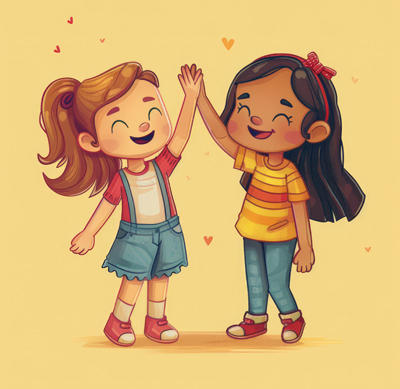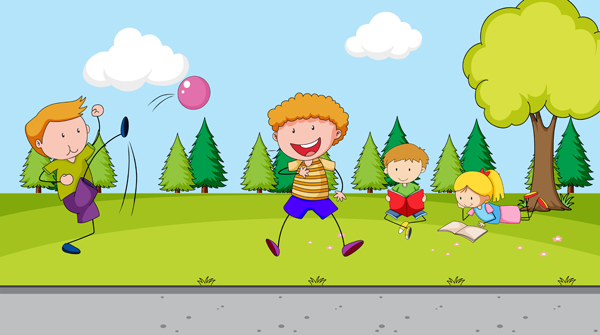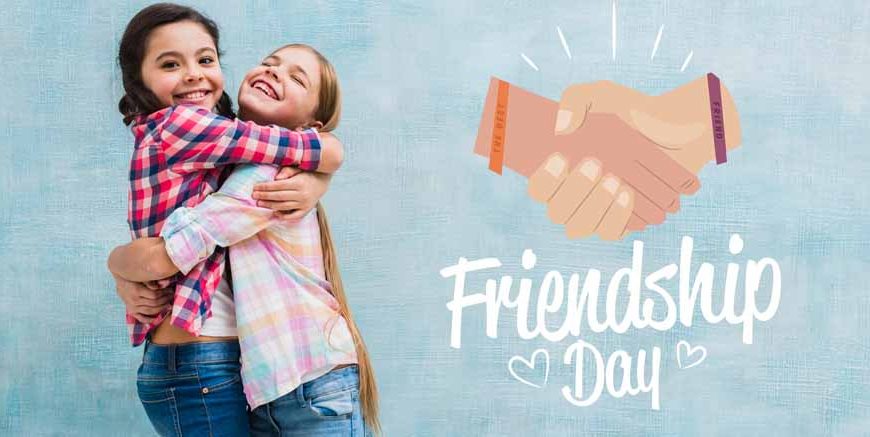What if the giggles, hugs, and even the occasional tears of preschool friendships could teach your child one of life’s most important skills? Every time your little one comforts a crying friend, shares their favourite toy with a school friend, or plays a game they don’t love just because their best friend from school loves it. They are building empathy, the ability to understand and share others’ feelings. This Friendship Day, let’s together discover how celebrating friendship day builds empathy in young kids.
How Does Celebrating Friendship Day for Kids Build Empathy in Early Learners?

Friendship Day for kids is a great opportunity to plant the early seeds of empathy. While empathy may still be developing in preschoolers, the spirit of Friendship Day helps them begin to understand the fundamental concepts of empathy – caring and kindness.
Moreover, when children participate in Friendship Day activities for kids, such as making friendship bands, sharing stories, or expressing gratitude to a classmate, they begin to experience how others feel and the impact of their actions/words on others. These small and simple gestures help children understand:
- People around them have different feelings and perspectives on everything.
- Put themselves in others’ shoes and imagine how someone might feel.
- Imagine the kind of response that might help a person feel better.
in the long run.
Also Read: Importance of Preschool Friendships
At EuroKids, we understand that friendship day activities for kids, such as friendship bands and sharing gratitude notes, are a powerful way to guide young minds toward more empathetic behaviour. That’s why, every year on International Friendship Day, we organise a range of fun and exciting activities at our preschools.
That’s not all; we also understand that empathy is learned within the context of relationships, through observation, guided experiences, and responsive feedback from trusted adults, such as teachers and parents. That’s why we encourage parents to nurture empathy in their children through simple, mindful actions, such as saying “thank you” to a waiter who brings them water or being gentle with their siblings when they are stubborn.
Similarly, in our classrooms, our teachers introduce children to empathy through reading and storytelling. Stories like The Lion and the Mouse, Alice in Wonderland, and The Three Little Pigs allow young learners to step into a character’s world, understand how they might be feeling, and relate those emotions to their own experiences. Through these shared moments, children begin to recognise, understand, and express a range of emotions, one of the most important steps in developing empathy.
Why Build Empathy From Childhood?

Imagine this: a seven-year-old Johnny is having fun with his friends at the park when his mother gently points out a shy child named Sam sitting alone nearby. Without any further prompting, Johnny leaves his group, picks up a spare football, and quietly walks over to Sam, inviting him to play. He even softens his voice and body language, instinctively matching Sam’s mood.
This simple act reflects something powerful: empathy in action.
Building empathy from early childhood is not just about teaching children to be “nice.” It’s about helping them develop the emotional intelligence needed to form meaningful relationships, make thoughtful decisions, and understand perspectives outside their own. These are lifelong skills that don’t suddenly appear in adolescence; they grow steadily, shaped by the experiences and relationships a child has during their formative years.
Empathy starts early. Babies as young as 18 hours old are believed to have shown the ability to react to another infant’s distress. As they grow, toddlers begin to understand that others have feelings different from their own. They start to respond to those feelings, often in simple but sincere ways—offering a toy, a hug, or even seeking help for someone in distress. By preschool age, children begin to show more advanced understanding of emotions and can even discuss how others might be feeling. That’s why teaching empathy to young kids is important.
Also Read: Strategies for Kindergarten Friendship Building
How is Friendship Day Celebrated in EuroKids Preschools?
At EuroKids, Friendship Day is more than just a celebration; it’s a joyful opportunity to help children understand the meaning of kindness, sharing, and emotional connection. Through thoughtfully designed activities, we create memorable experiences that foster empathy, promote cooperation, and lay the groundwork for lasting friendships.
Here are some of the fun and meaningful activities our children enjoy on Friendship Day:
- Friendship Bracelets and Crafts: Children use colourful threads, beads, and paper to make friendship bands or greeting cards, learning to express care through handmade creations.
- Circle Time Games: Engaging group games and team-based activities teach cooperation, turn-taking, and laughter-filled learning.
- Sing-Alongs & Dance Sessions: Music brings everyone together! Our Friendship Day playlists feature cheerful tunes that children love dancing to with their friends.
- Thank You Notes: With the help of teachers, children create small notes or drawings for their friends to show appreciation.
- Thoughtful Tokens: Little handmade gifts or shared drawings become keepsakes that celebrate friendship.
Through these simple and fun activities, Friendship Day becomes a celebration of connection, kindness, and empathy, values we hold dear at EuroKids. By encouraging children to recognise and appreciate their peers, we lay the foundation for respectful, compassionate relationships that will last a lifetime.
A Little About Friendship Day and How it Came to Existence
The idea of celebrating Friendship Day dates back to 1930. Joyce Hall, the founder of Hallmark Cards, introduced the concept of Friendship Day to the world. His vision was to set aside a special day for people to express their affection and appreciation for their friends. The first celebration for Friendship Day for kids and adults was proposed for August 2, but it didn’t quite catch on at the time.
Years later, on July 20, 1958, a new spark was lit. Dr. Ramón Artemio Bracho, a Paraguayan doctor, proposed the idea of celebrating friendship on a global scale. This led to the creation of the World Friendship Crusade, an organisation committed to promoting a culture of peace and unity through friendship. It was this group that first suggested July 30 as International Friendship Day.
The movement gained momentum over the decades, and finally, on April 27, 2011, the United Nations General Assembly officially recognised July 30 as International Friendship Day, encouraging communities and countries around the world to celebrate the role of friendship in building bridges between cultures and fostering peace.
Today, different countries observe Friendship Day on various dates. In nations like India, Bangladesh, Malaysia, the United Arab Emirates, and the United States, Friendship Day is commonly celebrated on the first Sunday of August. No matter when it is celebrated, the day is all about recognising the joy of friendships and teaching children, and adults alike, the value of compassion, connection, and empathy.
Final Thoughts
Celebrating Friendship Day is a great way to teach your little ones the most important lesson in life – empathy. With this article, we have tried to explain the ways how celebrating Friendship Day helps build empathy in early learners. For such insightful blogs on your little one’s learning and development, check out EuroKids Blogs.
Related Blogs:
- Strategies for Kindergarten Friendship Building: Making friends is an important milestone in early childhood. This blog offers practical strategies that teachers and parents can use to help kindergarteners build healthy social connections.
- Having a Best Friend: Inspiring Story for Kids: This heartwarming blog presents a relatable story about two young children who become best friends through small acts of kindness and shared adventures. The story emphasises important values like empathy, understanding, and the joy of companionship.
- Having Mom Friends Is Good for You and Your Kids: This blog explores why forming friendships with other moms can be a lifeline during the parenting journey. It delves into the emotional support, shared understanding, and sense of community that come from having “mom friends.”

















